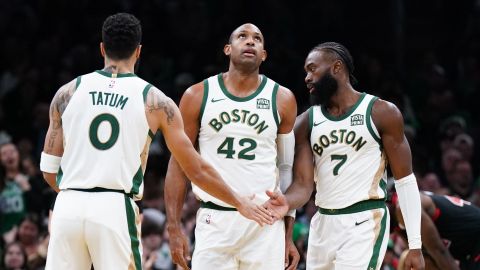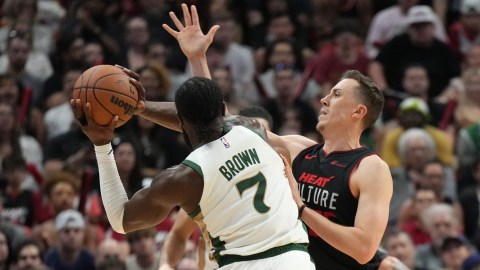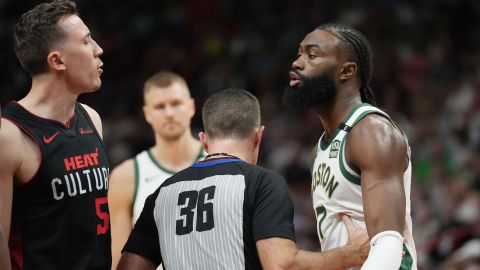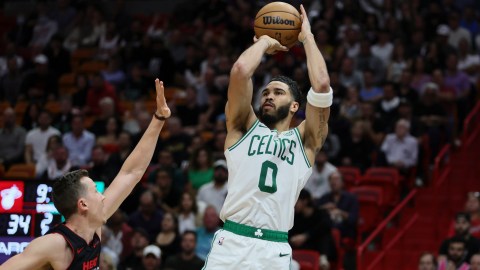 Those poor, poor Miami Heat. First, they acquired the sizable contracts of LeBron James and Chris Bosh in the summer of 2010, and now the NBA wants to charge them the luxury tax that was collectively bargained during the 2011 lockout. Honestly, is there no pity for the unfortunate Heat?
Those poor, poor Miami Heat. First, they acquired the sizable contracts of LeBron James and Chris Bosh in the summer of 2010, and now the NBA wants to charge them the luxury tax that was collectively bargained during the 2011 lockout. Honestly, is there no pity for the unfortunate Heat?
All sarcasm aside, Heat president Pat Riley showed a special kind of chutzpah by telling reporters in a conference call that he did not think the Heat should be subject to the full $33 million tax bill they are due to owe this season. Because Bosh’s maximum contract and James’ near-max contract were signed under the previous CBA, Riley reasons, their contracts should not count fully toward the new, more prohibitive luxury tax rules due to begin this season.
“I hope I don’t get in trouble for saying this, but I was always a proponent of any of the teams that had signed players to contracts that were under the old CBA should have had some consideration with the new CBA as to how the tax was going to be charged over the years, until their contracts ran out, that there should have been some consideration for that.”
Understanding that Riley, as team president, is obligated to voice his opinion on what is best for his team, his statements are too disingenuous to take seriously. Those with long memories — that is, anyone whose memory extends farther than three years back — will recall that the impending CBA changes were precisely why teams like the Heat scrambled to stockpile superstars when they did. Similarly, the Knicks raced to sign Amare Stoudemire and trade for Carmelo Anthony in the final year of the old CBA, on the assumption that the new CBA would make it more difficult for large-market teams to acquire multiple star players on large contracts and institute harsher penalties if they did. Of course, that is exactly what happened.
Riley knows this. He’s not forgetful and he’s definitely not stupid. His attempt to reframe Miami’s situation to suit his interests is just business. But the Heat were not blindsided by the impending luxury tax doom and the repeater penalties that could leave teams like the Heat, Nets and Knicks paying as much in taxes as in salaries in coming years. Riley and the Heat made their bed. Now they want to sleep elsewhere.
“That really did, probably, in the long run, hurt us from that standpoint,” Riley said of the summer of 2010’s blockbuster additions.
If only every team could be “hurt” like the Heat have been, with two NBA titles and a couple of MVP seasons from James. Chances are, any misgivings Heat owner Micky Arison feels when he receives next year’s luxury tax bill from the league will dissipate when he needs to remove one of his paperweight-sized championship rings in order to sign the check. It was worth the trade-off, and the Heat knew it would be when they went down this road, willfully, four years ago, having a pretty good idea of what was eventually in store for them.
Have a question for Ben Watanabe? Send it to him via Twitter at @BenjeeBallgame or send it here.



